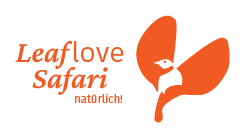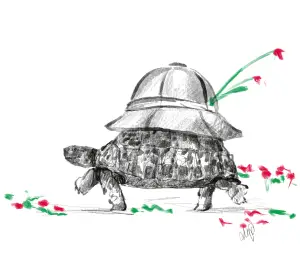A brief explanation about the migratory restlessness of the fantastic...
ViewEntry, climate and more
Without guarantee, just for your information!
Entry in Namibia
Visitors from the following countries do not require visas:
Angola, Armenia, Australia, Austria, Azerbaijan, Belarus, Belgium, Botswana, Brazil, Canada, Cuba, Denmark, Finland, France, Germany, Hong Kong, Iceland, Ireland, Italy, Japan, Kazakhstan, Kenya, Kyrgyzstan, Lesotho, Liechtenstein, Luxembourg, Macau SAR, Malawi, Malaysia, Mauritius, Moldova, Mozambique, Netherlands, New Zealand, Norway, Portugal, Russia, Seychelles, Singapore, South Africa, Spain, Swaziland, Sweden, Switzerland, Tajikistan, Tanzania, Turkmenistan, Ukraine, United Kingdom, United States of America, Uzbekistan, Zambia, Zimbabwe.
Visitors from the following countries can apply for a visa upon arrival in Namibia: Belarus, Cambodia, Chile, Equatorial Guinea, Benin, Cape Verde, Comoros, Eritrea, Bulgaria, Cameroon, Cote d’ Ivoire, Gabon, Burkina Faso, Central African Republic, Czech Republic, Gambia, Burundi, Chad, Djibouti, Guinea, Guinea Bissau, Mexico, Romania, Slovakia, Hungary, Moldova, Rwanda, South Korea, Liberia, Nicaragua, São Tomé and Principe, Thailand, Madagascar, Niger, Sierra Leone, Togo, Mauritania, Poland, Singapore, Tunisia, Uganda, Ukraine, United Arab Emirates, Venezuela, Vietnam and Western Sahara Republic.
- Journalists require a visa for work authorization.
- International tour guides need a work permit should they lead a tour independently. All Leaflove tour guides are registered in Namibia and are covered by insurance.
- Entry may be denied due to insufficient blank pages in the passport. Bring certified copies of your travel documents. In case of lost documents, such a copy can be very helpful in obtaining possible replacement documents.
- Important: Please make sure that enough days (stay in Namibia) are stamped into your passport at passport control. Report IMMEDIATELY,
if this is not the case.
Travel documents
• A passport valid for at least 6 months beyond the return date and with at least two free pages is required for entry.
•Also check for family members with children’s IDs/passports from other countries to see if there are different regulations to follow.
• Very important is the fact that without an “Affidavit” issued by a South African Embassy, you CANNOT travel to South Africa with children.
THIS ALSO APPLIES in transit! Please make sure to check this out beforehand!
• There have been cases where certain airlines did not accept a child passport and our customers could not travel any further with their children!
• The birth certificates of the children must be carried on person UNCONDITIONALLY. You will most likely have to prove that you are authorized to travel with the child by your side due to the child trafficking procedures.
• PLEASE carry copies of your documents and tickets separately in case something gets lost.
Visa
•United Kingdom, United States of America, German, Swiss tourists can enter the country without a visa – provided their stay does not exceed 90 days and they do not take up employment. A toll-free entry stamp (Visitors Entry Permit) for short-term (up to 90 days) tourist or business stay without taking up work is issued on arrival at all official border crossings. This also applies to holders of diplomatic passports.
• It should be noted that a tourist visa is not always valid for 90 days, although this has often been the case in the past. It is therefore strongly recommended to check upon entry whether the border official has entered a shorter duration of stay. An – even unintentional – overstay of the residence permit can lead to the imposition of drastic penalties (also: imprisonment).
• The validity of the visa is limited, among other things, to the duration of the intended stay, which usually results from the dating of the return flight. If overstaying this date becomes necessary, an extension of the visa should be applied for in time at the “Ministry of Home Affairs”, Independence Avenue/corner Casino Str., Windhoek. (max. total 90 days).
Accidents in Namibia!
• An accident happens and you want to be rescued! The first thing to do is to inform Emed Rescue 24, this air rescue company will have the plane, possibly the
helicopter and the trained paramedics ready to be deployed at the airport. Here are the contact details: +264 81 924
• The number of the MVA (Motor Vehicle Accident Fund) is: +264 85 955
• However, nothing works without payment! Please make sure that you always have covered credit cards, accident insurance cards, ADAC cards, etc. ready!
The official language of Namibia is English. In the cities like Windhoek, Lüderitzbucht, Swakopmund, Otjiwarongo and Tsumeb German is also often spoken. Besides English, German and Afrikaans (Dutch origin), Namibia has other indigenous languages such as: Oshiwambo, Oshiherero, Damara/Nama, Tswana, RuKwangari, ThiMbukushu and many more.
The population of Namibia
• Namibia currently has an estimate of about 2,800,000 citizen, which translates into about 3.3 people per square kilometer on an area of 824,268 km^2. More than 300 000
people live in Windhoek, the capital of Namibia.
• Namibia is divided into 13 regions and has a diverse 13 ethnic cultures.
• 65% of Namibians can read and write. Their lifespan is estimated at 56 years on average, which is certainly reduced by epidemics such as HIV/AIDS. The population growth rate is 3.3%+, with economic growth only below 2%.
• 1 450 schools offer children the opportunity to receive a school education, which is subsidized by the state. About 80% of the children in Namibia go to school.
Taxes
15% VAT (Value Added Tax) is included in all prices.
Climate
•Namibia can be easily visited at any time of the year as it is a very dry country. Our cold Benguela current along the Atlantic coast hinders the evaporation of sea water and therefore hardly any cloud formation takes place in the western part of Namibia. This phenomenon causes the extreme dryness in the famous Namib Desert. The Caprivi tip in the northeast of Namibia receives the most rain, since the clouds originating from the Indian Ocean are driven across the African continent to Namibia. This is where the risk of malaria is highest during the rainy season. The lowest amount of rainfall occurs in the south of Namibia. The rainy season usually starts in December and lasts until about April. As soon as the precipitation falls, the landscape changes drastically in just a few days. Nature comes alive with flowers of all colours. The summer months can reach over 40 degrees Celsius in the shade so bring some sunscreen!
•The dry season is from May to November. This period is good for viewing game in the Etosha National Park as the animals are forced to quench their thirst at the waterholes that are set up near the road network. The dry months are, ironically, the colder months due to Namibia being located in the southern Hemisphere. This means night times can become cold enough to form frost. Luckily, once the sun rises, temperatures can increase to over 20 degrees Celsius in the shade.
Clothing
• Light cotton clothing and sturdy shoes are recommended in the terrain and during hikes. Mornings and evenings can be cool enough to cause a shiver, especially in winter (May to September), and temperatures can fluctuate greatly.
• For protection from the sun, do not forget sunglasses and headgear.
• Long pants and long-sleeved shirts or blouses are also advantageous for hikes and animal observations. Therefore: dress and undress according to the onion principle.
•Even in summer, a warm jacket is part of the luggage. In general, the dress code is quite casual, even on the upscale lodges. You can get a good selection of safari clothing in specialty stores.
Phone service
•Namibia has a very well developed telephone network, which is connected to more than 221 countries, among others. Additionally, Namibia has a growing mobile network – MTC. This mobile network has contracts with 40 countries and about 80 network operators. Internationally activated cell phones (e.g. D1 and D2) can be used in Namibia. The mobile network is well spread such that you have reception in almost every village. In the remote regions this service is not possible.
• A pre-paid card from MTC is easy to buy; these cards are available to buy at the airport already. You can also order it in advance from us.
• The area code for Namibia is +264 if you wish to call from abroad.
Transport
• Namibia has no public transport network! Cabs provide transportation in larger cities such as Windhoek and Swakopmund, but only radio cabs are recommended – never wave a cab off the road, they are often unregistered and criminal. For your own safety, do not get into a cab that already has other people in it besides the driver! If alone, do not let anyone else get in!
• Bus connections are offered for travels to South Africa and within the country. Although the sights of Namibia are not connected with a public transport network.
•The tourist is most flexible with a guided tour or as a self-driver with a rental car.
•In Namibia you need an official International Driving License, but at the moment you can drive in Namibia with a Swiss or European Driving License without any problems. In Namibia there is left-hand traffic.
• Caution is advised when signing contracts with rental car providers / insurance companies located here.
• Comprehensive insurance -and application of comprehensive insurance- are agreed differently in Namibia than in Switzerland/Germany/Austria.
Driving on gravel roads
• A high number of German-speaking vacationers have serious, often fatal accidents on Namibia’s rural roads (gravel roads). In most cases, no second or third vehicles are involved. Rather – often as a result of excessive speed – the vehicle rolls over. The most important recommendation is therefore to adapt your driving speed to the road conditions.
•Keep the car in your driving lane. Changing over the gravel accumulations running next to the lane easily leads to skidding!
• Never overtake when a plume of dust from the car in front of you is blocking your view of oncoming traffic. You would risk a fatal head-on collision! When overtaking, especially in oncoming traffic, expect falling rocks. Slow down your speed until the encounter is over.
• Watch out for possible potholes, sand drifts, larger rocks, gullies, etc., which you often don’t see until the last moment because of the blinding sunlight.
Crime, beggars, tourists and general security
• If you are traveling by rental car, do not stop at unguarded rest areas, as robberies of tourists have occurred there repeatedly.
•Thefts and robberies against tourists – especially single travelers – are also becoming more frequent in the cities of Windhoek and Swakopmund. Walking in the dark is not recommended!
• Do not pick up hitchhikers!
• Tourists are often shy to behave strictly towards beggars and this is mercilessly exploited. You are doing NOBODY a favor when you give money to beggars, you are only making the situation worse!
•Appear strict and resolute, and especially do not give children anything. The beggars who approach tourists with good German and ‘sponsor’ lists for noble activities have become a big irritation. Do not give anything to these people, no matter how authentic they appear. PLEASE!
Insurance
• Namibian tour operators are not able to issue you with insurance certificates. We recommend you to get a travel cancellation insurance after receiving the travel confirmation.
• Before you leave, check with your insurance company regarding baggage insurance and travel medical insurance.
• Any insurance should be purchased in your home country.
Time difference
• Namibia is an ideal destination for the European as there is no time difference and the associated “jet lag” is absent. Nevertheless, during Namibian summer time there is a time difference of -1 hour from Germany, Switzerland and Austria to Namibia. During Namibian winter time this is +1 hour. (Germany/Switzerland/Austria 12:00 o’clock = Namibia 11:00 o’clock. The time difference between America and Namibia can be 6 to 9 hours, so jet lag will have to be considered.
Money
• The currency of the country is the Namibia Dollar (NAD or N$). The N$ is not immediately available at all banks in Europe or America, but must first be ordered. Therefore, you can also buy the South African Rand (ZAR). In Namibia, both currencies are accepted at the same value, i.e. 1:1. However, it is much easier to draw money at the ATM in Namibia, with your EC or credit card.
• A maximum of 2000 NAD (Namibia Dollar) or ZAR (South African Rand) may be imported per person.
• Many accommodations, restaurants and stores are connected to the credit card systems. Nevertheless, it is recommended to carry a certain amount of cash. Please inquire in advance!
• Gas stations accept cash and credit cards. In the airport terminal (arrivals) you will also find a bank counter to exchange money. Please keep in mind that there may be a queue. There are many uncomplicated ways to change money in Namibia and this does not need to be done abroad already. To get cash (at banks) we recommend to exchange Euro or U$.
Euros can be easily exchanged at banks and exchange offices in Namibia.
• Obtaining cash via credit card from banks can be very quite time-consuming, (up to an hour because of various inquiries abroad). Meanwhile, money can also be collected at ATMs with the credit card. (Secret code required) Also the EC card can be used at some banks. Please do not wait until your money is used up, because an ATM can also be out of order. Banks can be found in all major towns. You will need your passport to exchange money. Bank hours: Mon.- Fri. 9h – 15.30h Saturday 8.30h – 11h Visa and Mastercard are accepted almost everywhere, American Express and Diners cards are rarely accepted .
• We recommend simply drawing N$ 3000,- at the ATM with your EC or credit card.
• Tip…..5-15% of the bill, depending if the service was acceptable! But remember that tips are not included and many waiters live on tips. Luggage porters get about 2 – 5, – N$ per suitcase.
Drones, yes or no?
The use of drones in Namibia has gained significance in recent years, but it is crucial to emphasize that the indiscriminate use of drones by tourists is not allowed in many areas of the country. These regulations are in place to protect the delicate ecosystems, wildlife, and the privacy of local communities.
Drones can cause significant disruptions to wildlife, especially during breeding and migration seasons. To avoid disturbing the natural behaviors of animals and to maintain peace in natural areas, tourists are strongly advised to refrain from using drones in these sensitive regions.
The national aviation authority and local park authorities have established clear regulations and restrictions for drone usage to ensure safety, environmental protection, and respect for privacy. Tourists are urged to familiarize themselves with the specific guidelines at their respective destinations and strictly adhere to them before using drones.
By responsibly handling drone technology, we all contribute to preserving and respecting the unique beauty and integrity of Namibia’s nature.
Vaccinations
A valid vaccination against yellow fever is required for all travelers older than 1 when entering from a yellow fever – infected area. This is not required for entry from Germany, Switzerland & Austria. The health service of the Foreign Office recommends a vaccination against tetanus, diphtheria and hepatitis A, for long-term stays over 4 weeks or special exposure additionally hepatitis B, rabies, typhoid and meningococcal disease (4-fold vaccine). The standard vaccinations for children and adults according to the recommendations of the Robert Koch Institute (see http://www.rki.de/) should be up to date.
Malaria
• A high risk exists all year along the Kavango and Kunene rivers and in the Caprivi Strip. A medium risk (higher in the rainy season, lower in the dry season) exists in the north and northeast of the country with the provinces of Omusati, Oshana (eastern Ovamboland) Ohangwena, Oshikoto (northern Etosha Pan), and the northeastern parts of Otjozondjupa and Omaheke.
•There is a low risk in the adjoining parts of the country running out to the south.
• Transmission occurs through the bite of bloodsucking, nocturnal Anopheles mosquitoes. If left untreated, the dangerous malaria tropica in particular is often fatal in non-immune Europeans. The disease can also break out weeks to months after the stay.
• If fever occurs during this period, it is necessary to inform the attending physician about the stay in a malaria area.
•For malaria prophylaxis, various prescription drugs (e.g. Malarone, Doxycycline, Lariam) are available on the market in Europe / Switzerland. The selection and personal adjustment as well as side effects or incompatibilities with other medications should be discussed with a tropical or travel physician before taking chemoprophylaxis.
• Due to the mosquito-borne infection risks, all travelers are recommended to wear body-covering (light-colored) clothing (long pants, long shirts), -and to repeatedly apply insect repellent to all exposed parts of the body in the morning hours / evening hours / dusk. Peaceful Sleep or Tabard, which are typical for the country, have proven to be best. Autan has only a limited effect! If necessary, sleep under a mosquito net.
HIV/ AIDS
• HIV is a major problem in Namibia. The incidence of HIV in the population is over 19%. Through sexual contact, drug use (unclean syringes or needles) and blood transfusions, there is generally a high risk.
Diarrheal diseases and cholera
• Proper food and water hygiene can prevent most diarrheal diseases and especially cholera. Some basic rules: Drink only water of safe origin, such as bottled water, never tap water. In an emergency, use filtered, disinfected or boiled water. When traveling, use drinking water for washing dishes and brushing teeth. For food, boil, peel or disinfect. Be sure to keep flies away from your food. Wash hands with soap as often as possible, always after bowel movements and always before food preparation and eating. Perform hand disinfection where appropriate, use disposable towels.
The conclusion of a foreign health and travel recovery insurance is strongly recommended.
Seek advice from a tropical medicine consultation center/travel medicine specialist before traveling (see E.g.: http://www.dtg.org/ or http://www.frm- web.de).
Electricity
• The electricity network is designed for 220/240 volts alternating current. In Namibia 3-pin plugs are used. You can buy appropriate adapters in the country. Many accommodations are tourist-friendly in this respect.
PS: I have yet to see a Namibian plug in any world travel plug set, so don’t rely on your world plug.
• Important: There are guest farms and lodges that are not connected to the public power grid because of the distance. The electricity produced is generated with their own generators, and is often not available 24/7 in full capacity. Please refer to the respective information. Please charge your batteries whenever you can.
• Be sure to anticipate not being able to use your hair dryer everywhere, Many systems on the remote lodges and farms do not “like” hair dryers.
The “bring along list” for Leaflove Safari participants
• Your suitcase will get dusty and dirty (possibly bring a closed plastic cover/plastic bag), also please bring a sturdy suitcase that can take a beating. Soft bags/ rolling suitcases are easier to use and load. Please pack sparingly, it will save you and us a lot of trouble – the accommodations offer washing facilities.
• If you have booked a flight safari or are flying during your safari, we ask you to use small soft bags if possible. The smaller planes are difficult to load.
• Small towel and personal washing utensils.
• A good pair of binoculars is very important, we recommend good glasses such as Leica, Zeiss, Swarowski or the a little cheaper variant: Nikon or Minox. One pair of binoculars per person is best.
• strong and handy flashlight
• Camera and enough memory (spare camera and accu if available)
• Batteries for flashlight and camera
• Wet wipes and disinfectant wipes
• The mandatory face-mask
• Mosquito repellent
•Sturdy shoes (ankle-covering shoes for hikes and walks in the bush) – a dustproof bag for the shoes would also be very practical. Light shoes (sandals and/or hiking sandals).
•Own medication (eye drops, antihistamines, headache, diarrhea, flu…..) Sunscreen (at least SPF 30+ for body and SPF 50+ for neck and face).
• Hat (with brim) and sunglasses
• small daypack if possible, these things are handy on hikes
• Thin long-sleeved shirts (sun protection)
• Clothes for warm days and for cool days – no matter what time of year you come
• Lipstick with high sun protection
• Buff/neckerchief – so that you can protect your neck in the open stalking vehicles and cover your mouth and nose in dust.
• Swimming trunks / swimsuit / bikini
• Nasal spray (the air in Namibia is very dry)
Camping Safari:
• Your own warm sleeping bag. Although the nights in Namibia do not get very cold in the Summer, you can expect sub-zero temperatures in southern Namibia between the months of June and August. You will receive a mattress roll with sail cover from Leaflove Safari.
• Small cushion
• Headlamp
Tips and tricks
• DOOM is an insect spray in Namibia that is often provided in the rooms of the lodges. If you have mosquitoes in your room, you should spray the room thoroughly once before dinner to kill all mosquitoes. After dinner the poison is gone, and so are the mosquitoes.
• A very good body spray against mosquitoes is called Peasceful Sleep or Tabard- available in Namibian stores.
• Please bring disinfectant wipes and wet wipes. The toilets are not always very hygienic. It is also good to use a wet wipe when you go “behind the bush” and then press it back into the sleeve when used and dispose of it in a trash can. You always see toilet paper fluttering behind the bushes – it’s quite ugly.
• Since many lodges heat the shower and bath water with gas, you should always turn on the hot water on to the maximum and then regulate it with the cold.
An immense amount of helpful info is also available on the page of Namibia Tourism Board in Windhoek and Frankfurt.
For this information we can not take responsibility.
This could also interest you:
Wearing the correct hat on a safari in Namibia
The text humorously reflects on the psychology of hats, suggesting...
ViewEmotional Men and a Botanical Miracle
Friedrich Welwitsch, Thomas Baines, and David Livingstone: The Discovery of...
View



